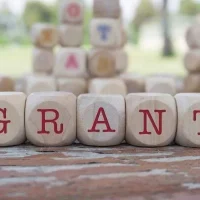Deadline: 07-Oct-21
Call for proposals for European Commission’s Democratic Politics in the EU’s Neighbourhood Programme.
Scope
- Since the EU Council conclusions of 2009, EU democracy support has evolved and has been fine-tuned, with advances and setbacks. Following the adoption of the EU strategic framework on human rights and democracy in 2012, the EU adopted three Action Plans in order to implement its commitments and reach its goals.
- The current Action Plan covers years 2020-2024.
- Despite the hopes raised by the ‘colour revolutions’ in Eastern Europe in the 2000s and the Arab Spring in 2011 as boosters of democratisation in the European neighbourhood, a more troubling reality persists: some democratic advances coexist with the continued persistence of authoritarian rule in Eastern Europe, the Middle East and North African countries. Research should assess the EU’s actual role in promoting democracy.
- It should examine the EU’s influence on political governance in the neighbourhood, its capacity to react and address potential gaps between the declared intentions, and the results and consequences of its democracy support policies. Critical reflection should facilitate understanding of the dynamics, including opposition to the EU’s democratic efforts in the neighbourhood. Such an overarching assessment should contribute to innovations in democratisation policies corresponding to the realities on the ground.
Funding Information
Grant amount is equal to or greater than EUR 500 000 except for:
- public bodies (entities established as a public body under national law, including local, regional or national authorities) or international organisations; and
- cases where the individual requested grant amount is not more than EUR 60 000 (lowvalue grant).
Expected Outcomes
Projects should contribute to at least two of the following expected outcomes:
- Comprehensive stocktaking of developments over the last decade, so that the European Union’s democracy support efforts can both regain traction and be revamped where necessary.
- Development of an improved policy toolkit for supporting liberal democracy in the European Union’s neighbourhood, paving the way for more stability and cooperation.
- Evidence base for the mid-term review of the implementation of the Action Plan for Human Rights and Democracy 2020-2024.
- Reflection on the European Union’s aspiration and role in supporting democracy in its neighbourhood.
Eligibility Criteria
- Any legal entity, regardless of its place of establishment, including legal entities from non-associated third countries or international organisations (including international European research organisations) is eligible to participate (whether it is eligible for funding or not), provided that the conditions laid down in the Horizon Europe Regulation have been met, along with any other conditions laid down in the specific call topic.
- A ‘legal entity’ means any natural or legal person created and recognised as such under national law, EU law or international law, which has legal personality and which may, acting in its own name, exercise rights and be subject to obligations, or an entity without legal personality.
- To be eligible for funding, applicants must be established in one of the eligible countries, i.e:
- the Member States of the European Union, including their outermost regions;
- the Overseas Countries and Territories (OCTs) linked to the Member States;
- eligible non-EU countries:
- countries associated to Horizon Europe
- low- and middle-income countries
For more information, visit https://bit.ly/3hBNg0h






![Call for Applications: “Voices in Motion” Program [Sri Lanka] - fundsforNGOs Call for Applications: “Voices in Motion” Program [Sri Lanka]](https://www2.fundsforngos.org/wp-content/uploads/2023/04/dance-200x200.jpg)


































